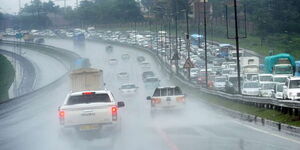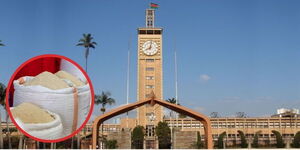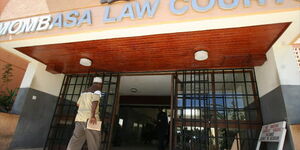Between January 11-13, the local newspapers have been filled with hundreds of homes and commercial properties set for auction valued in the hundreds of millions.
From maisonettes located within gated communities in Syokimau, to bungalows in Westlands, to whole apartment blocks in Kahawa Wendani, the auctioneer's hammer spared no one.
Among the properties that stand out and have been put up for auction include a 3-star hotel in South B, Nairobi County with a projected annual income of Ksh3 million.
A hotel along Limuru Road in Ngara, Nairobi, was also listed on January 11, with a Ksh1.2 million highlighted as its monthly rental yield.
Luxury vehicles were not spared either, as hundreds were listed, with auctioneers jostling to make a killing.
Thousands of vehicles ranging from personal cars to heavy-duty commercial trucks have been repossessed and put up for auction.
In February 2020, NextGen Mall (located along Mombasa) made headlines after a local auctioneer listed a section of its 1st floor in order to recover a loan of an undisclosed amount. The Mirage Executive Office Complex building in Westlands was also listed.
However, if auctions carried out in 2020 are to be used to measure success, just about 10% of the properties on auction are finding buyers.
There are instances where the auctioneers have not found anyone willing to bid above the reserve price.
This has seen phrases like ‘buyer’s market’ thrown around, as predator buyers are in a position to secure assets at almost half their value.
A recent analysis revealed that of the hundreds of properties on auction, on the back of a slowing economy, only a handful have found buyers. The most affected are high-end properties.
Auctioneers are finding it hard to dispose of houses (both residential and commercial) and other assets, whose value could be running into billions of shillings.
A slow economy has meant that demand is low forcing lenders into some very uncomfortable compromises.
Some banks have had to call clients for re-negotiations so that they can take back their cars but on condition that payments for the loans are on time.
The staggering number of properties up for auction affirms the recent trend involving defaults on mortgage loans advanced by banks.
According to a credit survey by the Central Bank of Kenya (CBK) covering the quarter ending June 30, 2020, many banks were preparing to start credit recovery efforts in the following quarter.
"For the quarter ended September 30, 2020, banks expect to intensify their credit recovery efforts in nine of the eleven economic sectors. The intensified recovery efforts are aimed at improving the overall quality of the asset portfolio," the CBK report stated.
"The banks intend to allocate more resources on monitoring and recovery of loans as well as the use of external parties in the recovery process," it added.
This was after the banks recorded an increase in Non-Performing Loans (NPLs), where seven of the 11 sectors categorised by banks recorded cases of borrowers failing to pay back the money on time.
An NPL is a loan in which a borrower hasn't made the scheduled payments for a period of at least 90 days.
"The increase in NPLs was mainly due to a challenging business environment as a result of Covid-19 pandemic," the CBK survey states.
Last year, banks advanced loan restructuring options for individuals and entities to help cushion them from the impact of Covid-19.
The number of borrowers defaulting on loan repayment however reached a new decade high of 15%.
According to a World Bank report published on November 25, 2020, one in three Kenyan workers are employed by firms facing a high risk of temporary or permanent closure and reduced revenues, highlighting the vulnerability of household incomes.
The economic and social disruptions induced by the pandemic have eroded progress in poverty reduction in Kenya, forcing an estimated 2 million more Kenyans into poverty.
The negative impact of Covid-19 on the private sector has trickled down to household welfare via reduced job opportunities and lower earnings. Unemployment has almost doubled compared to its pre-Covid level.
Coupled with the recent decision by the government to revert to pre-Covid tax rates, Kenyans are forced to dispose of their assets in a bid to stay afloat.












